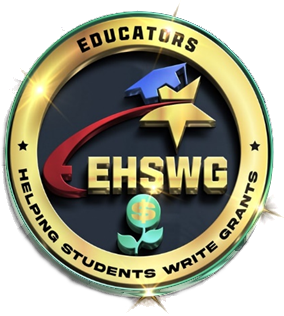Get Started with grant writing
If you have never written a grant before, it may be helpful to look at the grant requirements first. Find a good foundation, or family foundations in your local area. Look at websites. If you can find an application, or other guidelines, you’ll get a better sense of what they are looking for as an applicant, and other funders require for a grant. Can you meet these requirements before you get started with grant writing? This is the first stage of applying for any grant. Meeting the funders requirements.

Another aspect of grant readiness is your strong and realistic budget. Your ability to define all aspects of their programs and operations in their organization requirements. This is something readily apparent to grant-makers when they see a well-organized application and budget.
Most grant applications require quite a range of attachments. Your organization of your personal budgets is a must. Making sure you have all of these items organized and ready, this will help you apply for your grant.
Building a strong application is a must!
All grant-makers are looking at grants, as an investment in you, they want to ensure they’re making a wise choice with you. They need to make sure you are goal oriented and the money they invest in you. You will complete each goal you present to them. That is why the grant funders, will only give a grant for each semester or quarter of schooling at a time. Your needs must be very strong on multiple fronts. This way, you’ll compete with other students, who are doing great thing by volunteering with-in their community before they apply. A lot of them are going to complete they college education with driven goals, this is a must for each of you! Not just going to college to get a free ride with a marriage. A lot of hard work must be completed before you apply for any grant.
You’ll need these things to get a Great Grant
- A strong set of goals.
- Qualified because of good grades. (You do not have to have all A’s to get into college. Your willingness to work-hard to get good grades.
- A good measurement of successful outcomes and goals are the progress made towards those goals you set and achieved.
- A track record of accomplishments and awards, if any, that you have achieved before applying.
Before you seek out your first grant, make sure you’re have tried pulling in money from other areas for your college funds. These include special events, individual donations, and major gifts. Then, you’ll have the ability to operate your own budget programs while you wait to hear back from grant-makers. Part-time jobs, you’ll be in a great position to show the strength of your organizational skills. Grantmakers don’t want to fund a student who is just sitting around, on the verge of closing doors due to lack education interest.
The ability to learn from your mistakes
Most students do not follow up after a funder declines to fund their grant application. If you’re able to get in touch with the grant-maker to find-out why they didn’t fund you request, you can learn more about their goals for funding. This will improve your future applications, overall messaging, and hone-in on your grant writing strategy.
Here are reasons you shouldn’t ask for a grant writer’s success rate:
The national average is surprisingly low
Nationally, grant writing success rates range from 10-30% industry-wide. There is no standardized scoring entity, but depending on how you do your research. You’ll find sources stating that 1-in-10-applications are approved for funding, 20% of federal grants are approved, or up to 30% of grant requests receive a favorable response. With this range, one could consider a grant writer with a 20% rate to be rather successful. With this statistic, a successful grant writer gets a favorable response to only 20-out of every 100-applications submitted. Of course, some student grant writers receive fewer positive responses and some get more. But, ask a nonprofit professional outside of grant writing what they would estimate to be the average percentage rate, and I can almost promise you most would say the opposite: 80%.


Grant writing is extremely competitive
There are millions of grant requests submitted for consideration every year. According to the National Center for Charitable Statistics, there are more than 1.5 million nonprofit organizations registered in the U.S., an increase of over 10% between 2005 and 2015. There were 86,203 grant-making foundations in the U.S. in 2015. Each of those foundations would have to award 17-grants for all nonprofits in the United States to receive only one award.
While the number of nonprofits has increased, the number of grant-making foundations and the number of grants they awarded have remained pretty steady, increasing only slightly from year-to-year. To make a long story short, grant writing is fiercely competitive and getting fiercer with each passing year as more nonprofits are launched.
Grant writers must submit proposals
Often, grant writers must submit proposals to specific grant-makers, which can negatively impact their success rates. The grant writer is you the student. The likelihood of success is the drafting, submit the proposal as directed by the grant rules that you are applying for. You must follow their rules to the T.
In reality, a grant writer’s like “Educators Helping Student Write Grants”, is in an advisory role, our success rate is not a clear indication of their ability to research and assess grant opportunities, in assisting with each draft which must be a high-quality requests, build long-term relationships with grant-makers, these steward of those relationships with effective, successful reporting, and with an appealing story about you, your story is the foundation of your request. A grant writer advisor could be exceptional at all of these elements and still have many requests go unfunded. That is the way it is, this is your story make it a bestseller.


The nonprofit may not be grant-ready.
A grant writer is only as good as the mission and programs of the nonprofit. If the organization is not grant-ready, it is not going to be competitive for grant awards regardless of the abilities of the grant writer. Period. End of story! Want to learn more about preparing a nonprofit to submit grant requests? That is why you must seclect the correct grant to apply to.
We are funded
For grant writers businesses, hourly rates have pros and cons. On the one hand, you know what you’re getting per hour. On the other hand, the more efficient you become as a grant writer, the less you will ultimately make. In addition, hourly rates produce less consistent income. A nonprofit may need 30-hours of grant writing one month, but only 3-hours for the next one.
Because of these downsides, many experienced grant writers prefer to charge by project or by retainer. We are different really because we are fully funded from our own grant.

